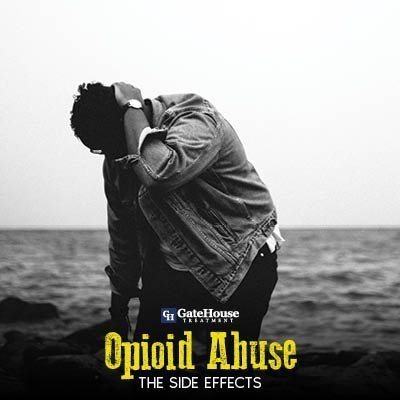
As we all know drugs and alcohol take a toll on our bodies. This is especially true of opioids. Do you know exactly what you are doing to your health when you take prescription opiates? Long term or even short term? Do you know the side effects of opioid abuse? We are here to tell you 5 of the biggest health effects of taking opioids.
Opiate abuse can start to rewire the brain over time and causing elicit changes in behavior, psychology, and physiology. As a result, you may notice a variety of physical and psychological changes in an opiate addict.
Initial physical side effects of opioid abuse are:
- Dry mouth
- Constipation
- Sweating
- Feeling lightheaded
- Feeling euphoric and overly elated
- Constricted pupils
- Flushed face
- Lack of coordination
- Sleeping too much or sleeping too little
More severe and serious side effects of Opioid abuse will start to occur if help is not received.
They include:
- Chest pain
- Hives
- Rash
- Seizures
- Fast heartbeat
- Slowed heartbeat
- Difficulty breathing or inability to breathe
- Slowed or shallow breathing
- Difficulty swallowing or inability to swallow
- Swollen face, tongue, hands, feet or throat
- Vomiting that cannot be stopped with medication
- Headaches / Dizziness / Drowsiness
- Nausea and vomiting
- Low blood pressure
Psychological symptoms of opioid abuse are:
- Confusion
- Loss of appetite
- Irritability
- Mood swings
- Depression
- Panic attack
Opiate abusers are also at an increased risk for certain health concerns, including HIV due to intravenous use of opiates. Additionally, intravenous opiate use can also lead to an increased risk of hepatitis. All opiate users regularly risk experiencing an overdose, which is a medical emergency and can easily turn lethal if not treated immediately.
The longer a person abuses opiates, the more at risk they are for causing serious, and sometimes permanent damage. Long-term health effects of opiate abuse include damages to various parts of the body such as the brain, heart, central nervous system, and other major organs. Opiate abuse can affect pregnancy and cause adverse health effects in fetuses and newborn babies.
Some long-term effects of opioid abuse include:
- A weakened immune system
- Gastrointestinal issues, such as constipation and bowel obstruction
- Respiratory depression
- Blood infections
- Bloodborne illnesses
- Vein collapse
- Coma
- Partial paralysis
- Skin abscesses
- Sexual dysfunction
- Impotence
- Brain damage and loss of cognitive abilities
- Dental problems
- Addiction
It is important to remember that the whole point of abusing the drug is to feel the “high” that comes with taking the drug. However, when a person gets used to the feeling or reaches such tolerance, the amount of drug they have been taking will not suffice any longer. Gradually, the dosage will start to increase, which will result in severely deleterious effects on the human body. Many parts of the body are affected.
Pregnant women who are addicted to opiates not only put their own bodies at risk, but they also put their babies at risk for addiction in utero as well as after they are born. According to a recent study, roughly 2.3 percent of pregnancies every year involve prenatal heroin or methadone exposure.
Prenatal opioid exposure risks:
- Preterm delivery
- Infant opiate addiction
- Newborn withdrawal
- HIV-positive infants
- Hepatitis-positive infants
- Neonatal abstinence syndrome, including tremors, convulsions and respiratory distress
- Infant resistance to soothing or cuddling
- Abnormal infant interaction with visual or auditory stimuli
As prenatally opiate exposed children grow, preliminary reports show a prevalence of hyperactivity, short attention span, and sleep disturbances in small children. Other studies show some mild memory deficits and perceptual difficulties in older children, and depression in young adulthood. While the data is still fully unclear as to how prenatal opiate exposure affects children, it is best for pregnant mothers to avoid opiate abuse and get help for their addiction during pregnancy.
If you or a loved one are struggling with opiate abuse, we at GateHouse can help you on your path to recovery. Reach out to us (855) 448-3588. We are available to you 24/7. You can heal, we can help!
- Cymbalta Withdrawal: Causes, Symptoms, And Management - October 12, 2023
- Boredom in Recovery: 5 Tips to Avoid Relapse - October 6, 2023
- Overconfidence and Rehab: Avoiding Relapse - October 4, 2023




